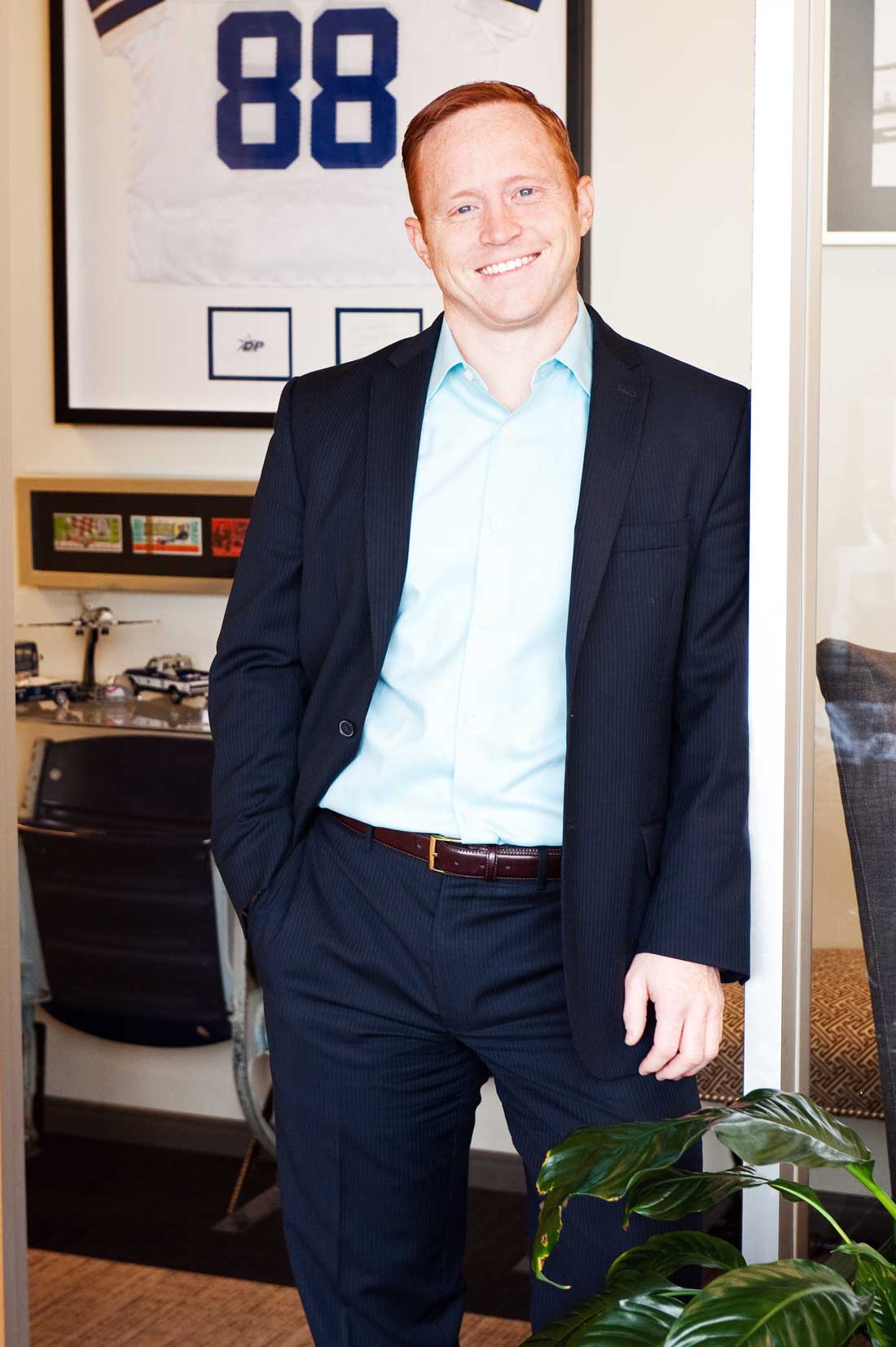Two years ago, community leaders, philanthropists, and educators teamed up for an innovative experiment aimed at transforming the lives of children in a southeast Fort Worth neighborhood. That experiment is netting some positive results, and now a new spinoff group is trying to build on its success.
The Morningside Children’s Partnership acts as a community hub –– a clearinghouse for charitable organizations, social services, and community leaders –– with the goal of getting children through school in one of the poorest areas of town. It combines the resources of the Fort Worth school district, the University of North Texas, the Rainwater Charitable Foundation, the Sid W. Richardson Foundation, and various community do-gooders.
The Morningside neighborhood is a 2.2-square-mile area between I-35 and South Riverside Drive south of Rosedale Street. More than 70 percent of its residents live below poverty levels, and almost half didn’t finish high school. The aim of the partnership is to remove barriers that keep students from excelling at school. The program works to connect families with social services and to fill the gaps in those services.
In its first year, the organization significantly lowered the number of students who were suspended or expelled for disciplinary reasons. At Morningside Middle School, the number of students who went through disciplinary hearings dropped by 51 percent; at O.D. Wyatt High School, the reduction was 63 percent.
Those results have inspired another local group of philanthropists to take on a related task: getting parents engaged in their kids’ education. The Morningside Parental Engagement Project will try to reach out to parents as well as children.
“Our goal is to have kids to be ready to enter kindergarten,” said Grant Coates, CEO and president of the Miles Foundation, a philanthropic group focused on education. “Our stated hypothesis is that if we engage parents in their kids’ education, even prenatally … that will have an impact on a kid’s readiness for elementary school.”
Community activist Eddie Griffin, who has been active in the Morningside partnership, said the neighborhood could benefit from better parental engagement, which could improve school attendance.
“We’re studying how average daily attendance at our schools tends to wane,” he said. “Kids are not motivated to come to school. They become more [complacent] and eventually drop out.”
The program’s creator, Jeremy Smith, president of the Rainwater Foundation, said his foundation supported a similar program in Dallas called the Zero to Five Collaborative and has seen positive results.
“We wanted to try a similar effort closer to home,” he said. “There’s lots of research that shows early parental engagement can have a tremendous effect on children’s outcomes.
“Simply put, a parent is a child’s first and most important teacher,” he said. “Easy activities such as talking to young children to develop language acquisition skills and reading to children to develop pre-literacy skills all have positive effects.” Studies show that when parents visit with teachers, volunteer at pre-school events, and attend parenting workshops, early student test scores improve.
The program is still taking shape. The Miles, Rainwater, and Morris foundations have contributed a total of $200,000 for the pilot project. They’re looking for smaller nonprofits to carry out specific programs to get parents involved.
Jay McCall, the Miles Foundation’s senior programs officer, said that applications are due June 17, and grant recipients will be chosen by the end of July.
“From a foundation’s perspective, this has been done pretty fast,” said Coates. “It was just two months ago we started the concept.”
Just like the Children’s Partnership, the Parental Engagement Project will ask nonprofits to collaborate. The foundations have already held two preliminary meetings with stakeholders from the school district and community and nonprofit organizations.
Coates said he was surprised that many of the nonprofits in the Morningside area didn’t know much about one another.
“It was good for them to sit around and get to know each other,” he said. “They wanted us to stop talking and allow them to network.”
Andrew Chambers, director of educational services at Morningside Children’s Partnership, said he had a similar experience with the groups involved in his charity.
“We had a lot of people doing a lot of good in the community, but no one was talking to one another,” he said. The partnership helped remove those barriers, he said, and as a result “everyone is talking to everyone.
“I may be able to provide assistance with clothing, but I can’t help a family that has a mental health issue,” he said, to illustrate. “Well, now I can call [the All Church Home Child and Family Services agency], and they’ll connect them to the right people.”
One nonprofit hoping to get a slice of the grant money is Camp Fire First Texas, which is focused on education. Its project manager, Jennifer Folzenlogen, said her group’s proposal will aim at supporting a childcare center in the area. Camp Fire hopes to turn the center into a hub for parents to connect and find out about other social services.
“We met with some of the parents to find out what their needs are,” she said. “So many families don’t have an avenue for services they need or to get information about their children’s development and how to prepare them for school.”
Crystal Cardwell, development director of The Parenting Center –– another group vying for a share of the grant –– said her organization is collaborating with other groups to get information to parents.
“We would work with other agencies in the community to reach a larger number of people that maybe we wouldn’t be able to reach by ourselves,” she said. “There’s not a lot of help in that community. If they wanted help, they’d have to go outside of the neighborhood, and they might not have the transportation” to do so. “That Morningside grant is bringing those resources to the community.”
Chambers called the parent engagement project a godsend and said the project and Children’s Partnership share goals and resources.
“The ultimate goal is that by third grade, students are all reading at a third-grade level,” he said. Having some groups working on parents getting children prepared for school “will be really helpful for us when we get them at Morningside Children’s Partnership.”
Griffin said he is keeping an eye on the new project. And he’s concerned that the Morningside Children’s Partnership could be affected by changes in leadership at the Fort Worth school district.
“I’m concerned right now about the continuity after Mr. [Walter] Dansby,” he said, referring to the district’s superintendent who recently announced his resignation. He questioned whether the district will “try and reinvent the wheel with a new superintendent or leave this model in place.”
Smith said that more funding could be available in the future. “After this initial year, we will re-evaluate if more or less funding is needed based on the outcomes,” he said. “I anticipate the number would grow depending on outcomes.”












